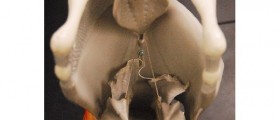
Meningitis is the medical condition featured by inflammation of the meninges which are the membranes covering the brain and the spinal cord. Depending on the causal agent, there are different types of meningitis. Here we will discuss about different causes of meningitis and how the disease can be prevented.
Causes of Meningitis
The most common cause of meningitis is a viral infection. However, pathogens like bacteria, fungi and parasites can also lead to meningitis, as well as non-infectious causes such as reaction to medications, inflammatory conditions such as lupus and sarcoidosis and some types of cancer.
Bacterial Meningitis
Bacterial meningitis is the most severe form of the disease and sometimes fatal. It develops when bacteria reach the brain and spinal cord via bloodstream or when they directly enter meningeal space due to a skull fracture or infection in an ear or sinus.
Different types of bacteria may cause meningitis. The most common cause of bacterial meningitis in infants and elderly in the United States is Streptococcus pneumoniae. Meningococcal meningitis develops due to Neisseria meningitides. Another strain of bacteria that can result in meningitis is Heamophilus influenzae type b, but number of cases has greatly reduced since introduction of preventive vaccine against this type of meningitis. Viral Meningitis
Viral infection causes mild form of meningitis that usually resolves without treatment within two weeks. The leading case of viral meningitis is enteroviral infection, which causes rash, sore throat, diarrhea, joint aches and headache. Apart from enterovirs, herpes simplex virus, varicella zoster virus, mumps virus, West Nile virus and other viruses can also lead to meningitis. Fungal Meningitis
Fungal meningitis is a rare type of meningitis that may occur in people with weakened immune system. Types of fungi that may cause meningitis include Cryptococcus neoformans, Histoplasma capsulatum, Coccidioides immitis, Aspergillus species and others. This form of meningitis is treated with antifungal medications. Prevention of Meningitis
In order to prevent development of meningitis one must avoid exposure to disease-causing agents. This means to avoid kissing or sharing eating utensils with infected individuals. Personal hygiene is also important. Hands should be thoroughly washed after using toilet and before eating.
You should maintain your immune system by eating healthy and balanced diet, drinking plenty of water, being physically active and getting enough rest. Pregnant women are advised to eat thoroughly cooked meat and avoid cheeses made of unpasteurized milk to reduce the risk of listeriosis.
Apart from these preventive measures, there are vaccines that can help to prevent some types of bacterial meningitis. This includes Haemophilus influenzae type b (Hib) vaccine which is routinely given to children. Pneumococcal conjugate vaccine (PCV7) is also included in routine childhood vaccination schemes. Older children and adults over age 65 can be vaccinated with Pneumococcal polysaccharide vaccine (PPSV).

















Your thoughts on this
Loading...